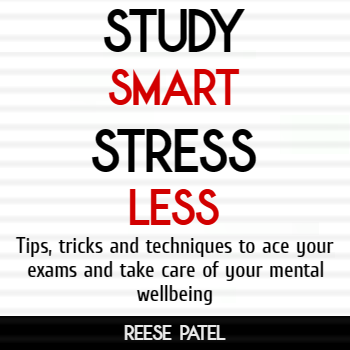Finding your purpose
(≈9 min read)

The fact of the matter is this: to even be able to consider the meaning of life renders you ridiculously fortunate. Over the past a thousand years on Earth and still in much of the world today, the ‘purpose of life’ is predefined upon birth. Survival.
Restricted access to drinking water, working twelve hour days to provide the bare minimum amount of food to sustain the family, compelled to engage in sex work just to have a bed to sleep in, fear of being sentenced to death or tortured for speaking the wrong words – this is the harsh reality much of the global population faces daily.
So when contemplating the meaning of life, it’s so important to first acknowledge your own immense fortune. There are millions of people in the world today who, if you were to tell them about your life, would think you were living in some kind of heaven. They’d consider their dreams made if they could spend a week, even a day, living in your shoes. You therefore, to millions of people out there, are already living the dream life.
Making the most of your opportunity
Even after acknowledging your relative fortune, the fact still remains that you were born comparatively privileged and that you do have a choice. You have this one opportunity, this once chance to make this one life you’ve been blessed with as amazing as possible. The question then becomes: how in the world are you going to do this?
To begin, a quote from Friedrich Nietzsche:
“He who has a why to live for can bear almost any how.”
Nietzsche’s belief was that once you’ve established a ‘why’ for your existence, a reason to battle through the storms life will continually throw at you, life can become more far more meaningful.
The hard part for most of us however (and something I’ll give tips to help you with later in the article), is actually determining that why.
Refusal to create goals, have aspirations or question your why, in Nietzsche’s eyes, would result in a dramatic reduction in the odds of you feeling content with life. Call me crazy, but I tend to agree with him.
The truth is this: life’s just too short to let it fizzle away and realise only on your deathbed that you didn’t live fully. Before you know it, it’s all going to be over…everything you know and love… gone. If you don’t do what you want to do in this life, you’re never going to get a second chance.

There’s a tendency for a lot of us to never once stop to consider our purpose. We blindly pace through life, oblivious to the fact we’ll soon die. How many people do you know who have been involuntarily sucked into this seemingly inescapable way of living – chasing money and wasting life away working a meaningless job?
It’s easy to conform to what society tells us we should be; it’s much harder to decide you want to pursue something you find genuinely meaningful.
Children are raised with almost every adult around telling them they have to do well in school so they can go to university and that they have to do well in university to get a high paying job and that they have to have a high paying job to provide money for their kids. But really, is that what they want for themselves? Perhaps. But oftentimes it’s actually not; oftentimes the child has never had someone sit them down and tell them that this is not how their life has to unfold.
The traditional path
Before exploring some potential ways of escaping this seemingly immutable path the modern western child ventures down, its first worth considering that the traditional path might actually appeal to you. Let me begin by outlining (with just a hint of cynicism) what I consider the traditional path to be:
Birth, school (which we apparently all hate), job (which we apparently all hate even more), raising a family (which usually occurs whilst doing that job we despise), retirement (the supposed dreamland which generally consists of being predominantly bed ridden and riddled with unbearable physical and mental pain) and last but not least, death.
So what can we do if we don’t want to go down this path?
It’s indisputable – money is important. We need financial security to support ourselves and our families. So is there really any way we can avoid this ‘traditional path’, most commonly referred to as the ‘rat race’?
Here’s one potential alternative, inspired by the work of Jiddu Krishnamurti:
- Find a passion, a ‘why’ for your existence
- Pursue that passion whilst educating yourself (education may be required for that passion or may just serve as a backup)
- Keep grinding to try and turn that passion into a job
- Decide if you want children
- Live happily, doing a job you love and die peacefully
Obviously this entire plan is incredibly simplistic and there are an insane number of areas where it could fall through but the general structure is there.
The effect of having children
Once you have children, life changes; you are now no longer the most important thing on this planet. You now have a duty, a moral responsibility to devote all your remaining years to ensuring your children are set up to live the best lives they can.
Now there’s almost always a huge degree of fulfilment and satisfaction that comes along with this journey, but the fact remains that having children is never a decision that should be taken lightly. It’s important to bear in mind that you only have one life. No second chances.
If you are willing to spend nearly two thirds of your life with the sole purpose of raising your children in the best way possible then great, but given life’s finitude and the limited minutes we get, it’d be perfectly reasonable and respectable if you decided you’d instead want to spend those remaining years experiencing the world and devoted to some other cause.

Having children also requires financial planning. There’s then the likelihood of parents’ spending most of their lives doing a job they despise for the sole purpose of ensuring their children are financially set up when they, as parents, die.
But even as a parent, you are still a mortal human being and your life and your time is still important. Of course you should prioritise ensuring your kids are set up in the best way possible but you should arguably not use this as an excuse to avoid pursuing other goals that are important to you, simply because pursuing them will require too significant a degree of hardship.
You only have one chance, one life. Do you want your life to be a story you write or are you ok with it being a story that’s written about you?
The older you get the more difficult things become. If you have a family, as I’ve mentioned earlier, you now have added responsibility – you have to work that job in order to provide for your family and that makes it very difficult to find the time to try new things. Jiddu Krishnamurti, Indian philosopher, talks about the utility of finding a passion and pursuing it as a side passion in your spare time.
If you don’t get time in the week for example, in the weekends, instead of wasting hours watching TV, you now have a ‘passion project’ to work on and you can set yourself goals in order to turn this passion into a stable income. It might take ten years, it might take twenty years but if you’re consistently working on something you’re truly passionate about, the time it takes for this project to turn into your full time job will not be wasted time.
The motivation for pursuing this passion should not be outcome based –motivated by fame, money or status. A true passion is something you’d do even if you knew you’d never get any recognition for it.
Van Gogh: “I can’t change the fact that my paintings don’t sell. But the time will come when people will recognize that they are worth more than the value of the paints used in the picture.”
By establishing a ‘passion project alongside’ a job, Krishnamurti suggests that now you’re taking the step to take control of life rather than let life control you. He says that: “It’s important for you, for all of you, to find your own talent, and stick to it, even if it doesn’t bring you success, fame and all that which is all nonsense anyhow, because we are all going to die!….While you live, live, not with all the rubbish that is going on.”
Is education actually important?
Children in the modern world are more aware than ever before of the fact that all their favourite singers and athletes and ‘youtubers’ have found a way to get rich whilst somehow bypassing education. Many live under this delusion that education is this useless chore that’s hindering them from following their idol’s footsteps and becoming the next superstar. The truth is, breaking into the ‘elite’ in whatever field you go into oftentimes doesn’t actually require education.
But in any case, even if you are striving for a job where school or university success is not required, education is still exceptionally useful to have. Education is a key. And once you have that key, you have it for life. If anything goes wrong, if times get desperate, you always have it to fall back on. Without it, you lack the safety net for the “what if’s” that are beyond your control. What if an athlete gets injured, what if a musician doesn’t make it?
Life, for me, is about cultivating curiosity and being genuinely interested in learning about the world we live in. To be provided the opportunity to learn so much for free is honestly a privilege.
Henry Ford – “If money is your hope for independence you will never have it. The only real security that a man will have in this world is a reserve of knowledge, experience, and ability.”
Is being rich a good aspiration?
So it’s clear that money is extremely important. Money buys you food and a bed to sleep in and medical care if you get sick. The world revolves around money and to suggest you can live life oblivious to it is to live in some kind of delusion. But it’s not the be-all and end-all. As I discuss in more detail in my article ‘Does money really buy happiness’, it’s totally possible and plausible to live a perfectly happy and meaningful life without obscene wealth.
Whenever you dream about being some money devouring millionaire who owns twenty mansions and fifty three lavish cars, it’s important to ask yourself what about this life you think you’d value. Novelty fades. And so although perhaps in the first month all these new items you’ve acquired might make you happy, you’d soon become accustomed to them; you’d soon start to realise that no amount of material possession or money can buy you that feeling of connection or love or contentment or gratitude.
A thought experiment by the philosopher William Irvine:

Imagine you wake up tomorrow and everyone around you has disappeared (an incredibly appealing thought, I know). Everything’s still there, buildings, clothes, cars but there are just no people. How would that change your perspective on what’s important in life? Now would you feel the need to wear designer clothes or would you instead prioritise comfort? Now would you really want to live in that huge mansion or would you prefer a small and cosier and more comfortable dwelling? Would you really want that diamond ring or that expensive jewellery?
Although you might initially object to the thought experiment, giving an argument along the lines of ‘this world is not the world we actually live in and so inferences cannot be drawn’, that’s not the point. The thought experiment is there to demonstrate just how much of what people want is not what they want but what they want because of how other people might perceive them. Much of what they want, they only want because of what society has labelled as “success”.
Some people say they want money to go and enjoy extravagant holidays on deserted beaches. But I guarantee your best holidays are not the ones you had at the most expensive places but instead the ones where you were surrounded by the best people. The same is true for almost every other one of life’s experiences. Something that money can never buy: connection. Money cannot solve loneliness.
Abigail Van Buren – “If you want your children to turn out well, spend twice as much time with them, and half as much money.”
Finding your passion
In the proposed alternative to the traditional path I noted earlier, step 1 was:
- Find a passion, a ‘why’ for your existence
For a lot of us however, that is easier said than done. We don’t feel like we are passionate about anything. We don’t feel like we could ever establish a strong ‘why’ for our existence.
Victor Frankl’s ‘Man’s search for meaning’, opens by outlining a question he, as a psychiatrist would ask his patients. It’s an incredibly useful question that can be thought through by anyone.
“Why do you not commit suicide?”
I know after reading it, you might think I’m crazy and that the question is way too sinister and dark, but deep consideration of your answer can highlight what things in life you truly find meaningful and can provide a good starting point for establishing your passions. For example, the most common response might be ‘my family’. In which case, you have highlighted something that gives your life meaning. But other things might include that novel you’re working on or your love for art or how much you love helping people.

Whatever your responses might be, everything you list is guaranteed to hold a significant amount of importance in your life. If doing art is a reason you don’t commit suicide then it’s important to you. You’ve established a passion.
Likewise, if you figure you derive a lot of joy from helping people then that can provide the basis for exploring careers which revolve around that quality – like being a therapist or psychologist or doctor or vet perhaps.
A lot of the time, the things you truly value are most apparent when you’re a young child, before society has had time to shape you. Stripped from societal expectations, young children tend to naturally gravitate towards certain things, things that can provide clues into what they could excel in come adulthood.
Even after this however, it’s still perfectly possible that you’re just as lost, still unsure if you’ll ever find something you’re passionate about. I’d recommend giving up. I’m joking – if you feel like this that’s totally normal.
What I’d recommend doing, especially when you’re young, is exposing yourself to as many different new activities as possible. Try cooking and art and writing and sport and music and maths and anything else that you think there’s a slim chance you might enjoy. The more things you experience, the more likely you are to discover that one thing that you love more than anything. If something makes you feel energised, keep doing that thing; if something makes you feel exhausted then move onto something else.
Even if you’re old and are not sure what you are doing with your life, there is still time. Start trying things. Start experimenting before it’s too late.
But even if you still can’t find anything, it’s important to note that sometimes the best things in life are things you never even planned for.
Why sometimes we should embrace life’s spontaneity
John Lennon – “Life is what happens to you while you’re busy making other plans.”
Although, this article, up to this point might have seemed super theoretical, almost like a kind of step by step guide, this is absolutely not how life works. If you’re young and reading this right now, chances are what your passion is right now will change. And that’s absolutely ok.
The emphasis should absolutely not be on deciding how you want your whole life to materialise in this very moment. It is however useful to delve a little bit deeper and question whether your motivations and aspirations are yours or whether they’ve been unwillingly forced upon you by others.
Life will present you with opportunity after opportunity and a good life involves seizing these opportunities when they come. Sometimes the best things in life are not planned. And that’s really something to bear in mind. Your perception of where you want to go is absolutely allowed to change. But that shouldn’t stop you from having a vision. Having a goal is important; having a why, a reason to wake up every day and fight through life’s struggles is what gives life meaning.
This vision can then change as you experience failure and learn from that failure and discover what things you enjoy. But without an overarching goal, you’re just wandering aimlessly through life, letting external events control you.
Sometimes however, it is just about embracing the spontaneity of life; reacting and learning from your mistakes and embracing those opportunities when they come.
To end – is there really a purpose to life?
When many of us question the purpose of our life, we gravitate towards things like money or fame or achievement. We tell ourselves that we have to do something great for our life to have meaning. But that’s not true.
There’ll always be a gap between what you have and what you want and this gap makes you unhappy. But that gap will never close. No matter how much you have, it’s human nature to always want more. The urge to want things doesn’t stop when you reach the things you previously wanted; you’ll just come up with new things you need. This means, if you’re not careful, you’ll spend your entire life climbing a mountain that never ends. You’ll tell yourself that when you reach the summit, happiness will finally arrive. But in reality, the summit simply doesn’t exist; every time you think you’ve reached it, you’ll see an even higher peak in the distance.
People don’t live to achieve things or get famous or accumulate an obscene amount of wealth.

People live so they can make cake and fall in love and go to concerts and watch their kids grow and surround themselves with the people that make them happy. All the little things are really the big things because they are what make you you. Being grateful for what you have, getting out of bed each day, despite knowing you are going to be faced with adversity and trying and trying even when faced with failure, are all far more important than achievement when it comes to contentment.
As Albert Camus says:
“You will never be happy if you continue to search for what happiness consists of. You will never live if you are looking for the meaning of life.”
There’s a tendency to delude ourselves into thinking life means something more than simply existing. But in my eyes, there is no grand purpose for our existence. We live and we die and then disappear as the memory of us slowly fades away until it is extinguished forever. We are free, when living, to make our own meaning.
To finish, a quote from Alan Watts:
“The meaning of life is just to be alive. It is so plain and so obvious and so simple. And yet, everybody rushes around in a great panic as if it were necessary to achieve something beyond themselves.”









